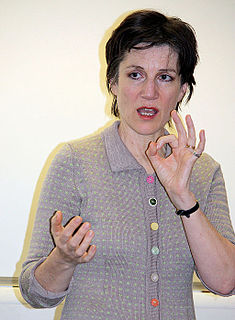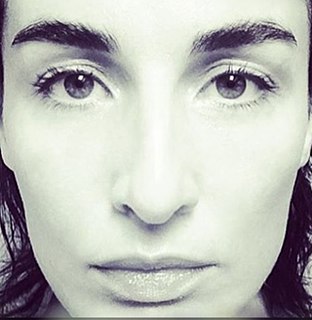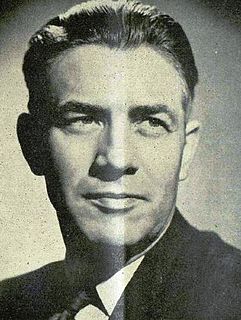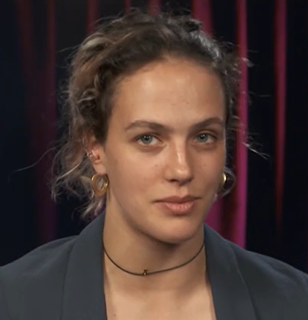A Quote by Miranda July
Very few women have become famous for being who they actually are, nuanced and imperfect. When honesty happens, it's usually couched in self-ridicule or self-help. Dunham doesn't apologize like that-she simply tells her story as if it might be interesting. The result is shocking and radical because it is utterly familiar. Not That Kind of Girl is hilarious, artful, and staggeringly intimate; I read it shivering with recognition.
Related Quotes
Many spiritual seekers who say their wish is to awaken don't actually want what they believe they do. This becomes clear sometimes at the approach to the brink of what feels like a void, where the obliteration of the egoic self seems imminent. With a shocked recognition of what is being asked, the person will recoil. The scale of the loss-the dissolution of the familiar self-is beyond what was bargained for.
I read a lot by female psychoanalyst Lou Andreas-Salomé, who wrote prominent biographies of Nietzsche, Rilke, and Freud because she studied with all of them. She had this unbelievable insight into contemporary psychoanalysis. What is so interesting is that she wrote her life, and she knew that her life would be about these men, and it didn't stop her from leading an incredibly successful academic career. But her strange self-awareness that she was going to bookmark these men's lives is really interesting to me.
Parents and leaders should give early help to the blase girl who is often overpainted and underdressed. She is the picture of an unhappy girl whose physical adornments, to her thinking, don't invite adequate attention. Heaven help the girl who gets the kind of attention she is seeking by being overpainted and underdressed! She will rue the day, of course, when she gets the kind of attention her flagrant invitation is giving.
I never had any desire to be famous. I find people who do really sad. I genuinely feel sorry for them because there is nothing of substancein their lives. I am happy when I am writing or performing. Not when I sit there being "famous". I like recognition for my work, but not recognition for being "that bloke off the telly". It is genuinely humbling when a woman comes up to me, as someone did recently, to say she wanted to commit suicide after her husband died, and my show cheered her up and made her feel better. That's great.
There is another more subtle way in which the innocence of childhood is lost: when the child is infected with the desire to become somebody. Contemplate the crowds of people who are striving might and main to become, not what Nature intended them to be- musicians, cooks, mechanics, carpenters, gardeners, inventors- but "somebody": to become successful, famous, powerful; to become something that will bring not quiet and self-fulfillment, but self-glorification and self-expansion
Most women in our culture, then, are disordered when it comes to issues of self-worth, self-entitlement, self-nourishment, and comfort with their own bodies; eating disorders, far from being 'bizarre' and anomalous, are utterly continuous with a dominant element of the experience of being female in this culture.
In her heart she is a mourner for those who have not survived. In her soul she is a warrior for those who are now as she was then. In her life she is both celebrant and proof of women's capacity and will to survive, to become, to act, to change self and society. And each year she is stronger and there are more of her.
The fame thing is interesting because I never wanted to be famous, and I never dreamt I would be famous. You know, my fantasy of being a famous writer, and again there's a slight disconnect with reality which happens a lot with me. I imagined being a famous writer would be like being like Jane Austen.
I know a girl who just looks at her face in the medicine cabinet mirror and never looks below her shoulders, and she's four or five hundred pounds but she doesn't see all that, she just sees a beautiful face and therefore she thinks she's a beauty. And therefore, I think she's a beauty, too, because I usually accept people on the basis of their self-images, because their self-images have more to do with the way they think than their objective-images do.
Staring at her face, she began to fancy her outer layer had begun to melt away while she wasn't paying attention, and something -- some new skeleton -- was emerging from beneath the softness of her accustomed self. With a deep, visceral ache, she wished her true form might prove to be a sleek and shining one, like a stiletto blade slicing free of an ungainly sheath. Like a bird of prey losing its hatchling fluff to hunt in cold, magnificent skies. That she might become something glittering, something startling, something dangerous.
It is a mistake to look at someone who is self assertive and say, "It's easy for her, she has good self-esteem." One of the ways you build self-esteem is by being self-assertive when it is not easy to do so. There are always times when self-assertiven ess requires courage, no matter how high your self-esteem.
When we look at these historical women and what they've gone through, it's shocking to recognize some of our own experiences in theirs. When you look at someone like Ada Lovelace who is the first computer programmer, during her lifetime doctors said that was really sick because she was trying to use a masculine kind of brain that she didn't have. Today, her legacy of being the first programmer is stil disputed.






































